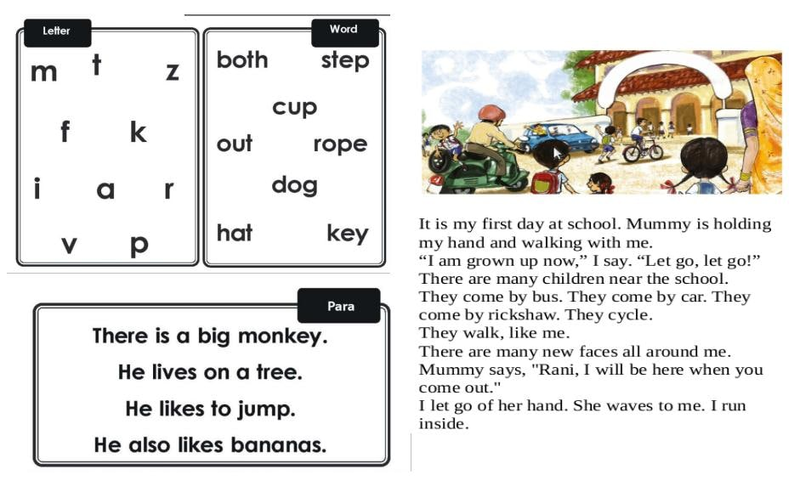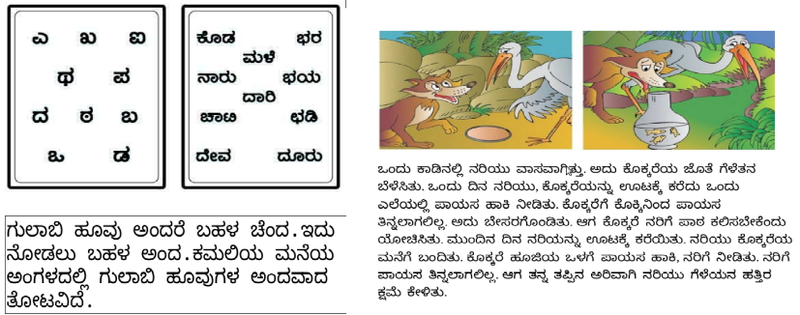Difference between revisions of "Language reading"
Jump to navigation
Jump to search
| Line 2: | Line 2: | ||
Worksheet used for reading assessment in English and Kannada. | Worksheet used for reading assessment in English and Kannada. | ||
| − | [[File:Reading .png|left|English Reading|alt=| | + | [[File:Reading .png|left|English Reading|alt=|thumb|800x800px]] |
| Line 10: | Line 10: | ||
| − | [[File:Kannada Reading .png|left|Kannada Reading|alt=|border| | + | [[File:Kannada Reading .png|left|Kannada Reading|alt=|border|thumb|800x800px]] |
| + | |||
Latest revision as of 14:58, 8 September 2022
To assess whether a student can read alphabets, words, short paragraphs, or stories, the ASER tool was used where the evaluation was done through interaction with each child individually. In order to evaluate the reading skills in Kannada and English, the child was initially asked if they are comfortable reading words and if they could read it, they were then asked to attempt reading the paragraph. If they could comfortably read this as well, they were asked to attempt reading the stories. If the child had trouble reading words, they were asked to try and identify letters.
Worksheet used for reading assessment in English and Kannada.
Rubrics to assess:
| Student names | able to recognize less than five letters | Able to recognize 5-10 letters | able to read less than 5 words. | able to read 5-8 words | struggling to read the simple sentences | able to read all the simple sentences | able to read the full story with 4/5 mistakes or is able to read very slowly | able to read the full story fluently without any hesitation and mistakes | Comments |

